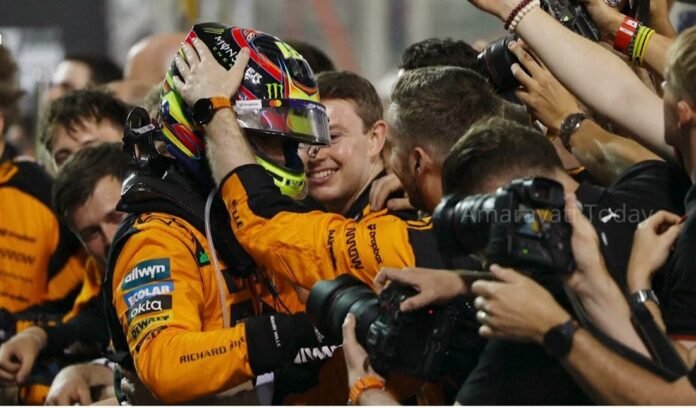Red Bull’s poor form and car issues prompt Helmut Marko to raise alarm over Max Verstappen’s future.
Red Bull motorsport adviser Helmut Marko has expressed “great concern” over Max Verstappen’s future with the team as the four-time world champion grapples with a difficult start to the 2025 Formula 1 season.
Speaking after a frustrating Bahrain Grand Prix where Verstappen finished sixth, Marko admitted the current car isn’t good enough to keep the Dutchman satisfied. “The concern is great,” he told Sky Germany. “Improvements have to come in the near future so that he has a car with which he can win again.”
Verstappen, who remains under contract until 2028, is now third in the standings, trailing championship leader Lando Norris by eight points. The McLaren driver’s team-mate Oscar Piastri took his third win of the season in Bahrain, further compounding Red Bull’s struggles.
Marko recently confirmed to BBC Sport that Verstappen’s contract includes a performance clause, reportedly allowing him to leave should Red Bull fail to provide a competitive car. The precise terms remain private, but the clause is believed to demand a machine capable of fighting for titles.
Although Verstappen claimed victory at the Japanese Grand Prix earlier this month, that success hinged on a masterful qualifying lap and Suzuka’s notoriously hard-to-pass layout. In the season’s other three races—Australia, China and Bahrain—he has qualified no higher than third and has battled persistent car issues throughout.
Red Bull’s RB21 has been plagued with balance problems all season. Verstappen has complained about instability on corner entry and understeer in the middle of turns—issues that returned to haunt him in Bahrain.
Team principal Christian Horner acknowledged after the race that the current car’s problems are “fundamentally similar” to those which hampered Verstappen in the latter half of 2024. Despite winning just twice in the final 13 races last year, Verstappen secured his fourth world title thanks to a dominant early-season run.
Horner also revealed that Red Bull are facing problems with wind tunnel-to-track correlation. In other words, the car isn’t behaving in real-world conditions the way the team’s simulations predict. That disconnect has left Verstappen frustrated and short of answers.
Sunday’s Bahrain race highlighted those problems. Verstappen’s race unravelled with two botched pit stops—one delayed by traffic light issues and another by a front wheel fitting error. At one point, he dropped to the back of the field before clawing his way to sixth, passing Alpine’s Pierre Gasly on the final lap.
He blamed the poor result on Bahrain’s punishing track conditions. “Here you just get punished a bit harder when you have big balance issues,” he said. “The wind is also quite high and the track has quite low grip, so everything is highlighted more.”
Despite the mounting problems, Verstappen insists he remains “relaxed” about his future. However, uncertainty over Red Bull’s trajectory and looming 2026 regulation changes add complexity to any long-term decisions.
The 2026 season will usher in major chassis and engine rule changes, making it difficult for drivers to predict which team will dominate. Mercedes, though, are widely tipped to be ahead on engine development—and their team principal, Toto Wolff, has been open about his interest in Verstappen.
Wolff and Verstappen held informal talks last year, though no discussions have taken place this season. Still, with Verstappen’s loyalty increasingly tested, speculation continues to mount.
Red Bull’s immediate focus remains on fixing the RB21’s flaws. But with Verstappen’s patience hanging in the balance and Mercedes lurking, Marko’s public anxiety may be a sign of deeper turmoil behind the scenes.
